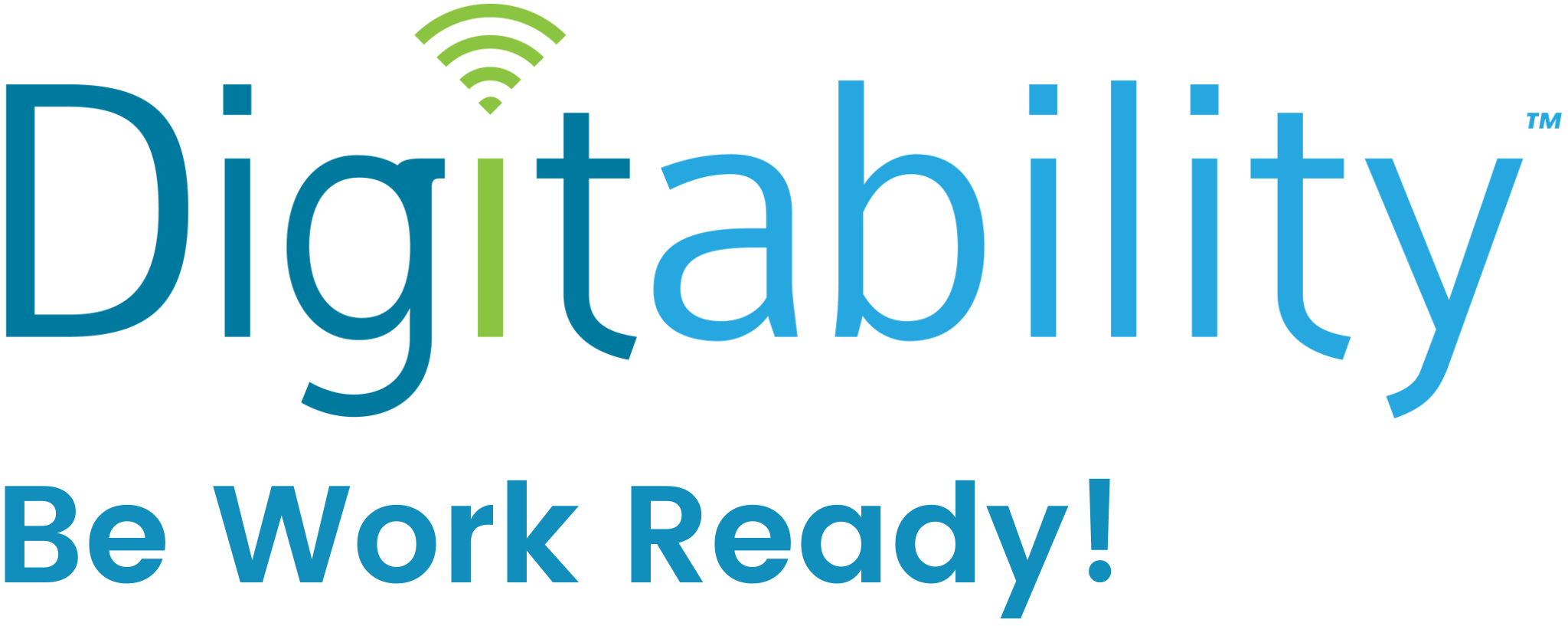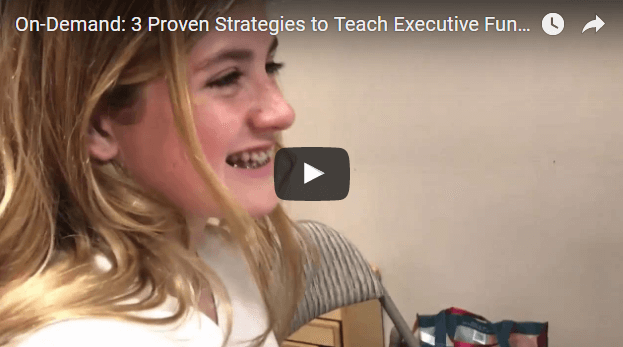The Essential Role Executive Function Plays in Teaching Students Work-ready Skills
What in the world is Executive Function (EF) — and why do students with cognitive disabilities need to develop EF? You may be intrigued to discover that we use our brain to perform EF every day in school, at home and in the workplace. First, let’s define the term and then review the important role EF plays in the learning process.
This article and video (below) will also provide strategies that enhance executive functioning in the classroom, thereby, maximizing school success while helping your students to become work ready; much like the Digitability program does.
What is Executive Function?
The definition of Executive Function varies; however, most agree that EF is the command and control processes of the brain. It involves the cognitive processes of brain functions that enable a person to engage and persist in goal directed and problem-solving behavior.
Dr. Tom Brown helps us to understand this concept by providing the classic metaphor of a conductor’s role in an orchestra.

3 Proven Strategies to Teach Executive Function from a Harvard Fellow
Quick side note — here’s a free on-demand webinar where I show you 3 specific strategies you can use to develop executive functioning for students with learning and behavioral disabilities. I describe how these executive functions are crucial to transitioning students into a tech-driven economy.
As you will see in this video, the conductor is responsible for directing, managing, monitoring, and integrating all aspects of the various instruments in the orchestra; ultimately, achieving the goal of directing a magnificent symphony.
Some EF skills may include but are not limited to the following; prioritizing, planning, time awareness, working memory, sustained attention, organization, motivation, flexible thinking, self-regulation, persistence to complete a task and emotional control.
Why does Executive Function Contribute Enormously to School Success for Students with Cognitive Disabilities?
Think about it…. Consider the challenges of grade level core curriculum standards. For instance, in elementary school, students in first and second grades are required to complete lengthy reading and writing assignments, as well as long-term projects.
Students are also asked to use the internet and other forms of technology to obtain information, and at the same time, they are not necessarily taught how to understand and tease out information on the internet that is pre-organized by experts. All these academic tasks require efficient EF skills.
Students who are struggling to implement efficient EF skills will show difficulty in organizing and prioritizing information they need to study. They may have problems with shifting flexibly from the main idea to important details during reading comprehension, and may show weakness with teasing out important information. Often students will “burn out” or show weak sustained mental effort for long story books and writing assignments.
They may perform poorly on tests and are weak in self-monitoring; consequently, inefficient EF may lead to anxiety, low self-confidence and failure.
Executive Function Strategies that Enhance the Diversified Learner’s Success
Many researchers believe it is crucial that all learners be taught EF strategies because they impact all aspects of students’ work, especially as they move up in grade level. The following strategies will enhance EF success in the classroom, home and the intervention setting;
- Model for student what to underline/highlight (saliency-most important ideas/details)
- Use technology to enhance motivation and sustained mental effort (iPad, computers, Digitability)
- Use time organizers such as watches, alarm timers, computers, and calendars
- Provide study guides, make sure schedules are visual and reviewed often
- Stage projects and homework in small time chunks (step-by-step approach-use visuals)
- Teach students to create personalized checklists to help with most common errors
- Document and estimate time of study, homework and projects to enhance time awareness
- Use acronyms to help with memory and color code important information
- Teach 3 and 2 –column note taking and use technology to enhance self-monitoring efficiency
Considering the above information, it is no surprise that evidence based research has made it very clear that ALL Students can benefit from direct explicit instruction in EF, especially diversified learners who are experiencing attention, behavioral and learning difficulties. Ultimately, teaching EF strategies will enhance enthusiasm for the learning process and maximize school success!
About the Author
 Catherine Rae Chase, MA, LDTC, a Psycho-Educational Diagnostician and Learning Consultant/Reading Specialist, is the first educator to receive a Fellowship in Developmental Behavioral Pediatrics at Harvard Medical School.
Catherine Rae Chase, MA, LDTC, a Psycho-Educational Diagnostician and Learning Consultant/Reading Specialist, is the first educator to receive a Fellowship in Developmental Behavioral Pediatrics at Harvard Medical School.
She currently holds appointments as a Curriculum Director for Digitability, and is an Associate Practitioner and Interventionist at the Pediatric Wellness Network in New Jersey.
As an owner of Chase Psycho-Educational Services and a Learning Specialist, Catherine provides assessment and strategy interventions to schools, parents and student clients.
She has over 25 years of experience in the field of education, which includes teacher trainer, Child Study Team consultation, strategic teaching, advocacy, curriculum consulting and research. Catherine can be reached at crchase77@gmail.com.

